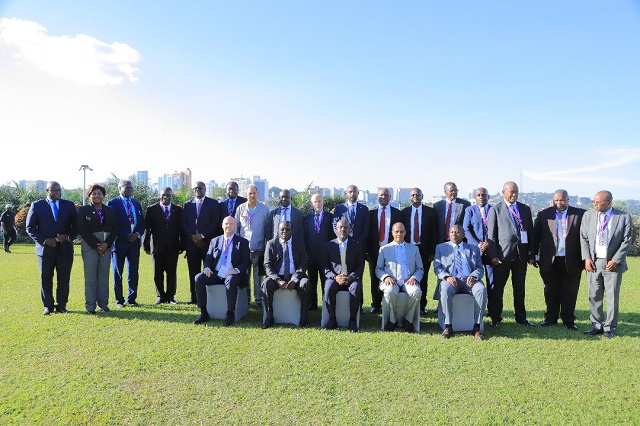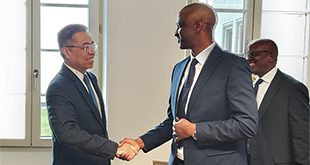
Kampala, Uganda | THE INDEPENDENT | The Africa Chief Justices’ Summit on Alternative Dispute Resolution -ADR closed on Wednesday in Kampala with a resolution to advocate for its funding to aid its promotion.
The summit that brought together all the Judiciaries in Africa and 15 Chief Justices from various countries attending physically was being held under the theme
“Re-engineering Alternative Dispute Resolution -ADR on the African Continent and 16 resolutions have been made to that effect.
Alternative Dispute Resolution Mechanisms are ways of settling disputes amicably without going to courts of law such as by embracing Mediation, Arbitration, and Reconciliation in civil matters and Plea Bargain, and Diversion in Juvenile Justice in criminal cases among others.
The Deputy Chief Justice of Uganda Richard Buteera said they have resolved that they should Advocate for African Governments to budget and allocate sufficient funds to support the promotion of Alternative Dispute Resolution because it is cheap and cost effective.
Buteera said they have also resolved that the Chief Justices should lead the reform initiatives to promote ADR and Alternative Justice Systems (AJS) as part of promoting Sustainable Development Goal number 16.
The judicial officers discussed different ways of improving Alternative Dispute Resolution in the conference. However, the Chief Justices later went into a closed-door meeting for some good time to come up with final resolutions.
Buteera then informed the Judicial Officers that it had also been resolved that all Judiciaries in Africa should support the regular convening of the Africa Chief Justices’ Summit on Alternative Dispute Resolution.
The Chief Justices were be encouraged to appoint Alternative Dispute Resolution Focal persons in their respective countries to act as lead focal contact persons.
Buteera reported that they have resolved to call upon all Judiciaries and encourage partnership with research institutions and practitioners to map out the conceptual foundations of Alternative Dispute Resolution and how they intersect with each other.
The conference further resolved that they should Advocate for the revision or enactment of Alternative Dispute Resolution laws and guidelines that promote the use, adoption, recognition, and enforcement of Alternative Dispute Resolution processes and outcomes.
It is expected that such enabling legal frameworks will lead to improved standardization of Alternative Dispute resolution practices and codes of conduct.
“Call upon Judiciaries to study Alternative Justice Systems (AJS) with a view of assessing their overall impact and suitability to promote access to justice Call upon each jurisdiction to adopt an “Alternative Dispute Resolution / Alternative Justice Systems week as means for building awareness,” said Buteera.
They will also Advocate for revision of the legal education including the review of legal school syllabuses to facilitate the development and application of Alternative Dispute Resolution and Alternative Justice Systems (AJS)and Advocate for enhanced training and capacity building for ADR Practitioners.
Countries that have effectively embraced alternative dispute resolution shall be contacted to support other countries in exchanging knowledge and encourage peer-to-peer learning among the resolutions and all Judiciaries have also been tasked to put into place supportive infrastructure within the Judiciaries to support ADR such as creating an ADR Registry with ADR Judges and Registrars.
The Speaker of Parliament Anita Annet Among who was represented by her Deputy Thomas Tayebwa while Presiding over at the closing ceremony said colonialism had formalized the court system with bureaucracy, and complicated court cases.
Among said that those have contributed to case backlog and technical legal issues which continue to clog the court system.
She encouraged the Judiciaries to run ADR with the formal Justice system while advocating for appropriate policies to be put in place to regulate the practice.
She emphasized that Parliament is committed to playing its role of appropriation of funds, debating, and passing laws to promote the Alternative Dispute Resolution practice.
The Chief Justice of Uganda Alfonse Indicated that countries need Alternative Dispute Resolution to promote peace, unity, and reconciliation.
Owiny-Dollo said research shows few people come to courts of law in Uganda and of those few that come to Court, only 40 percent of the cases are concluded timely, and the remainder give up or take the law in their hands.
He said Alternative Dispute Resolution is simple, cost-effective, and doesn’t involve time-wasting, money-consuming, and hallowing court processes and called upon the citizens to embrace it.
Uganda’s Justice and Constitutional Affairs Minister, Norbert Mao recently indicated that the Government finalized a policy to regulate governance of Alternative Dispute Resolution mechanisms in the country.
******
URN
 The Independent Uganda: You get the Truth we Pay the Price
The Independent Uganda: You get the Truth we Pay the Price


